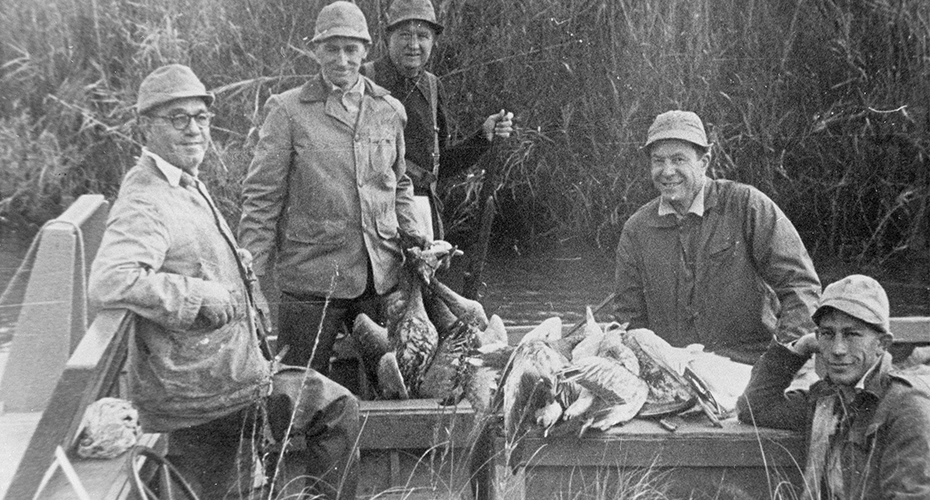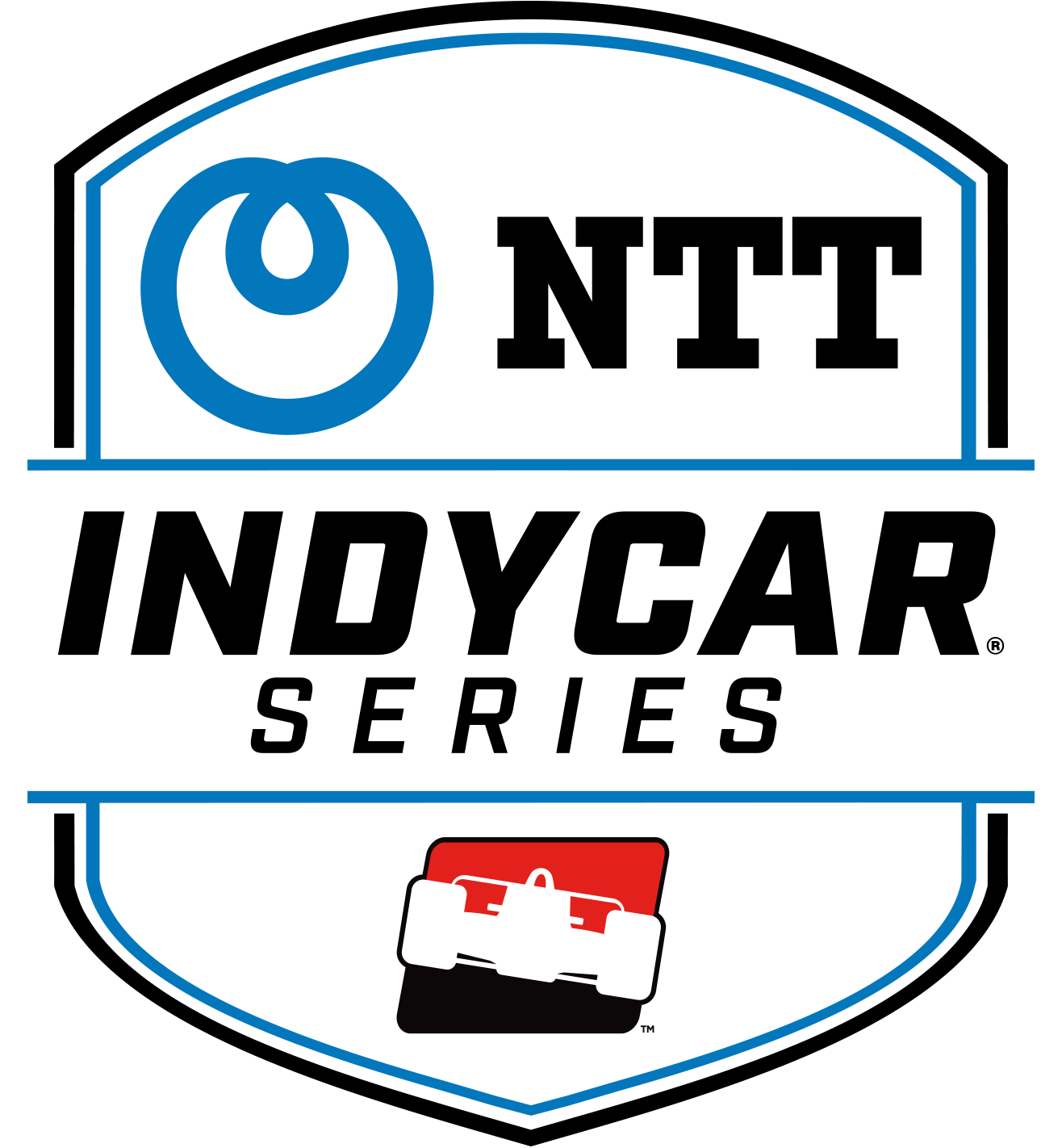Hulman family keeps another tradition going with annual duck hunt
DEC 27, 2016
The offseason means it’s duck season for Ed Carpenter.
Each year, the Verizon IndyCar Series’ only owner/driver is joined by relatives and friends for a hunt that has been a longstanding family tradition since the days of his late great grandfather, Tony Hulman, who purchased Indianapolis Motor Speedway in 1945 and whose heirs retain ownership of the facility more than seven decades later. Carpenter is the adopted son of Tony George, the IMS board chairman and Hulman’s grandson. (Hulman is shown in a photo below, second from the right, during a 1949 duck hunt.)
Carpenter, his father, brother Tony George Jr., brother-in-law Will Younger and close friend Jay Bryan are among the usual cast of characters on the hunting trips that have previously included former racer A.J. Foyt IV. It’s two days of male bonding at a club near Peoria, Ill., with this year’s trip taking place in November.
“Every year is fun and special,” Carpenter said. “It’s become a tradition of sorts. The club we go to, our family has been going to since Tony Hulman. There’s a lot of family tradition there, a lot of cool pictures you look at and reminisce about every year. It makes every time going over there special.”
Foyt didn’t join this year’s visit because he was deer hunting elsewhere.
The group typically sticks to a routine. They hunt, play cards, watch TV and “maybe drink some Fuzzy’s vodka” in enjoying the offseason adventure with his team sponsor’s beverage, Carpenter said.
“Obviously no drinking Fuzzy’s until we’re done hunting for the day,” Carpenter said. “I need to throw that disclaimer out there.”
The 35-year-old said he’s a decent shot, but leaves the duck calling to experts.
“There’s some guys that work there that do most of the duck calling,” he said. “I don’t know how many ducks I would actually be able to call in. I’m decent at being able to have them come out of the sky, but getting them to fly, I don’t know, that’s not my strong suit.
“It’s not like you go buy (a duck whistle) and start blowing in it and ducks are going to fly your way. Like a lot of things, there’s an art to it. I leave that to more experienced guys.”
Carpenter just completed his 14th year as a driver and fifth season as a team owner. He’s a three-time winner in 164 career series starts as a driver as well as a two-time Indianapolis 500 polesitter. He’s celebrated seven Verizon IndyCar Series wins as an owner.
Hunting provides an ideal getaway to decompress.
“There’s not much work that gets done,” he said of his racing job. “There’s barely any cell signal. It’s easy to disconnect. That’s part of why everyone likes it, I think.”
Sometimes, the lake is frozen over, so there’s no hunting. That actually makes the trip more memorable.
“That just meant more card games and camaraderie,” Carpenter said. “Some years are better than others. Sometimes we’ve gone over there and haven’t fired a gun because the lake is frozen over. Either way, we still have a good time and it’s worth the trip even if it’s not a super-successful hunting trip.”
This year’s haul was so-so.
“We got like 13 or 14,” he said. “For sure, we’ve had better trips, but we’ve also had worse in terms of what we’ve been able to harvest.
“Everyone who goes over has done a fair bit of hunting, whether it’s duck, pheasant or other game. It’s a pretty good group. We’re all pretty decent.”
Carpenter and Younger made another November trip to Kansas to hunt pheasants with Younger’s cousins and friends. They got 19 pheasants and two quail in two days.
“I’ve been pheasant hunting before,” Carpenter said. “Duck hunting is more sitting in a blind, calling ducks and waiting for them to come to you, more like deer hunting in a tree stand versus deer hunting out west where you walk around.
“Pheasant hunting, you hunt in groups. You generally form a line and walk a field, and you’ll have a couple of people at the end of the field who are referred to as blockers. The pheasants will run or fly, but generally if you have people at the end of the field, they’ll jump up and fly and those guys will shoot ‘em. It’s generally more active. You’re constantly walking through different fields.”
So what’s the tougher shot?
“I think ducks are a little harder because the pheasants are usually flying up from the ground near you,” Carpenter said. “Ducks are coming from all different angles, across you, from behind you, above you. Pheasants are a little faster, but since they’re starting from a stop, if you can pick one up quick I think they’re easier to bring down.”























